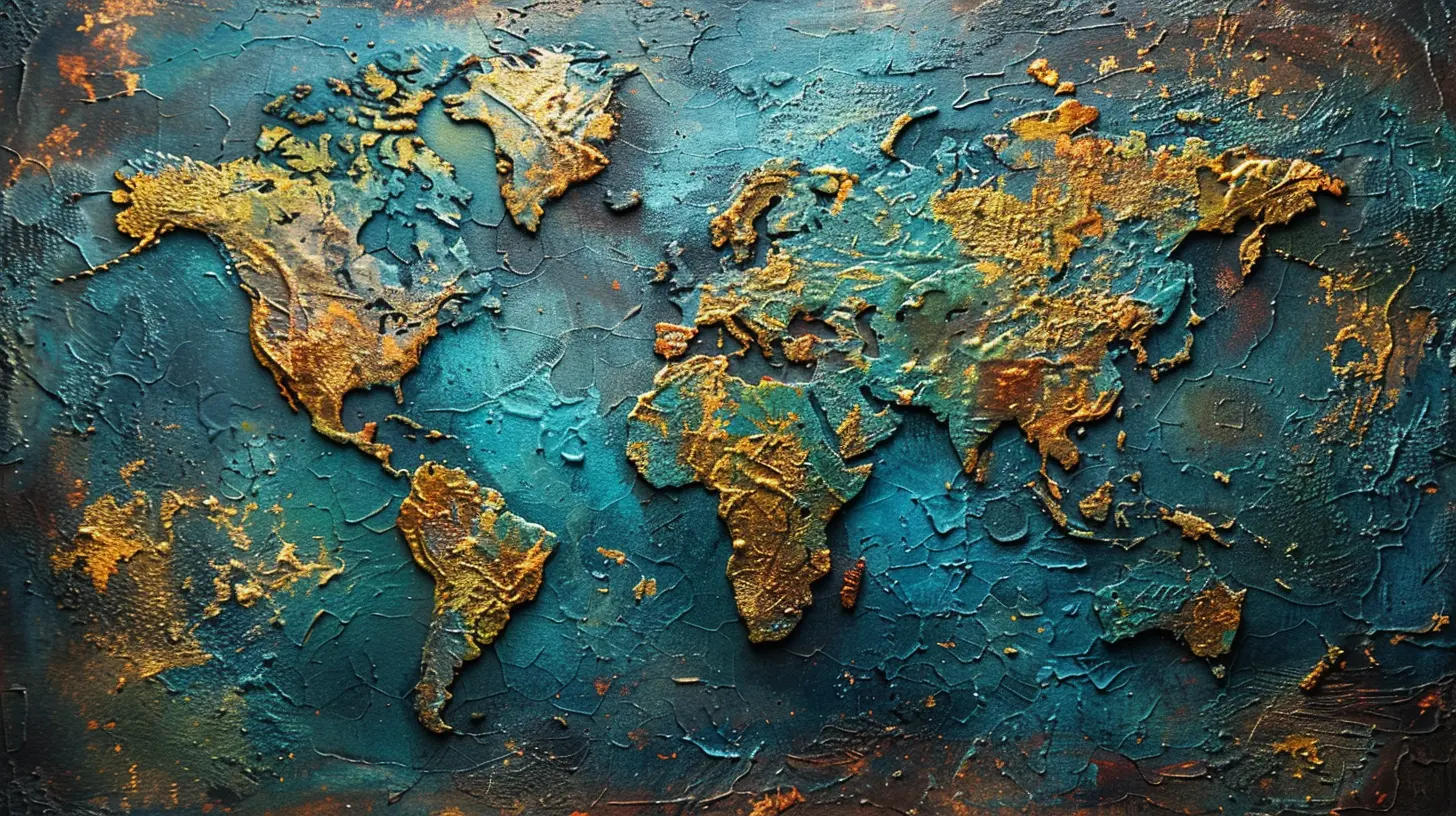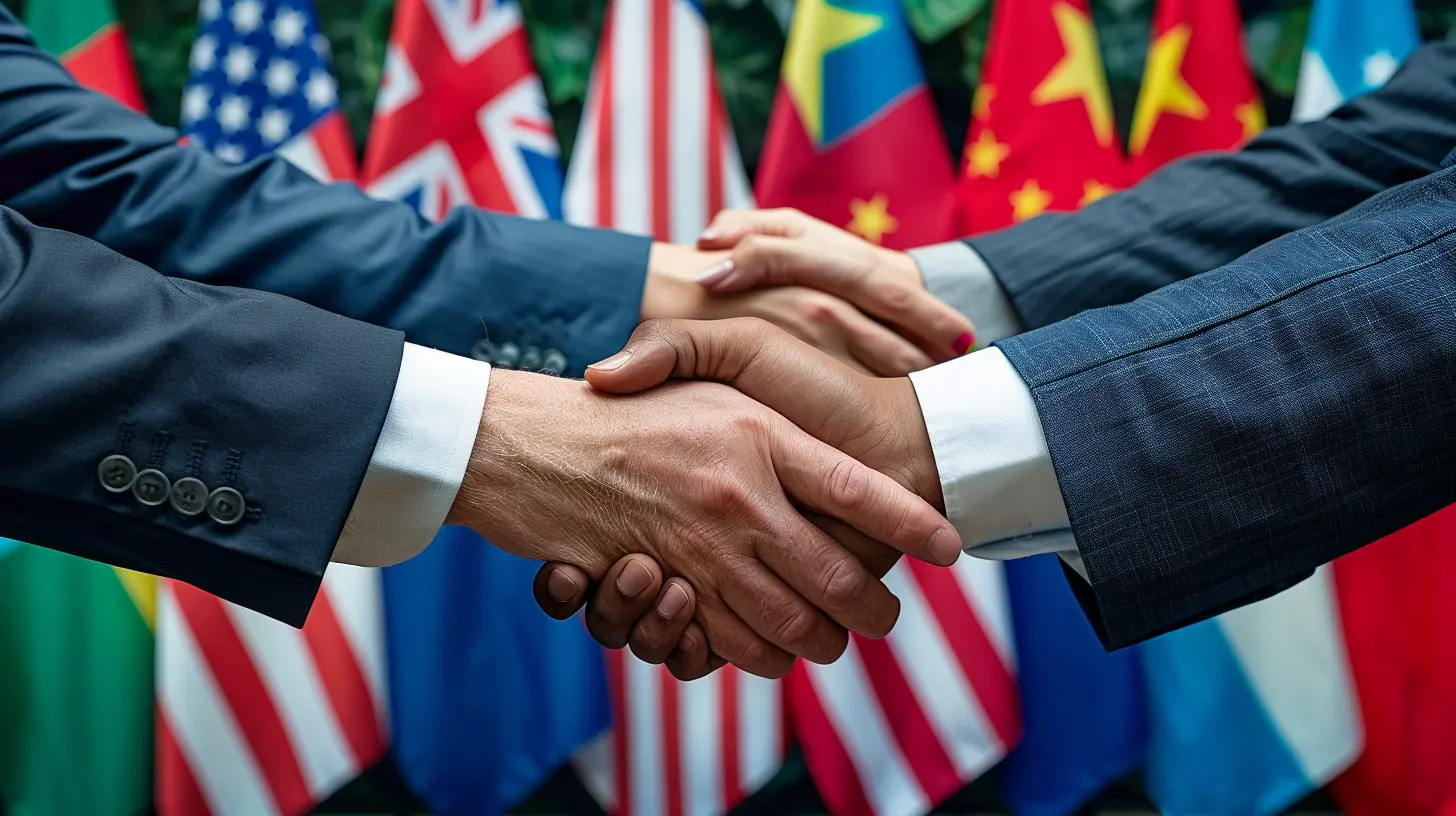The Impact of Global Political Shifts on International Business
30 July 2025
Let’s be real—global politics can feel like one of those overly dramatic reality TV shows where alliances change weekly, villains emerge unpredictably, and nobody ever reads the fine print. Except in this case, instead of shocking plot twists ruining someone’s dinner party, they’re disrupting entire economies and wreaking havoc on international businesses. Fun, right?
But here’s the catch: no business, no matter how big or small, lives in a vacuum. Whether you’re running a mom-and-pop export shop or managing a multinational corporation with offices in 40 countries, global political trends are like that one coworker who insists on involving themselves in everything. Understanding and adapting to these shifts can mean the difference between swimming with the tide and being swept away like a soggy flip-flop.
So, grab a cup of coffee (or something stronger if geopolitics gives you heartburn), and let’s dive into the wild world of global political shifts and how they’re affecting international businesses. 
What Do We Mean by “Global Political Shifts”?
Alright, before we try to untangle this web, let’s define it. A global political shift refers to significant changes in government policies, international relations, or geopolitical landscapes. Think trade wars, regime changes, sanctions, Brexit (remember that?), or even unexpected alliances—you know, the stuff that keeps diplomats up at night and business leaders pacing their boardrooms.These shifts can stem from elections, policy overhauls, coups, or even economic crises. Sometimes they’re slow and predictable, like a glacier moving; other times, they hit you out of nowhere, like your toddler discovering permanent markers.
And here’s the kicker: thanks to globalization, political issues in one corner of the world can send shockwaves everywhere. It’s like that one domino toppling over and triggering chaos across the room. Your business in Toronto might suddenly feel the brunt of a trade dispute between China and the U.S. Time zones? Irrelevant. Borders? Cute idea. 
Trade Wars: The Business World’s Soap Opera
Trade wars are the international economy’s equivalent of a messy breakup. One country says, “Hey, I’m raising tariffs on your goods,” and the other snaps back, “Oh yeah? Well, TWO can play that game!” Next thing you know, everyone’s crying into their spreadsheets, and businesses are left scrambling.Take the U.S.-China trade war, for instance. When these two economic giants got into a tariff tug-of-war, it wasn’t just the countries involved that felt the impact. Companies around the globe had to deal with higher costs, disrupted supply chains, and uncertainty that could make even the calmest CEO sweat through their three-piece suit.
Imagine this situation: You’re running a tech firm that imports components from China. Suddenly, tariffs jack up your costs faster than ticket prices at a Taylor Swift concert. Do you absorb the costs, pass them onto customers, or start frantically Googling local suppliers who may or may not exist? 
Sanctions: The “You Can’t Sit With Us” of Global Politics
Sanctions are essentially governments telling certain countries, “Sorry, you’re not invited to the party.” And by “party,” I mean the global economy. These restrictions are typically imposed to punish rogue behavior (like human rights abuses or illegal nuclear programs), but they also create ripple effects that businesses everywhere feel.Take Iran or Russia as examples. Sanctions on these nations don’t just impact local businesses; they make international companies think twice before doing business in those markets. Let’s say you’re a European car manufacturer who was planning to expand into a sanctioned country. Overnight, your plans might transform into a logistical nightmare. You’d need to reassess partnerships, ensure compliance, and probably hire a lawyer who seems to bill you for every exhale. 
Political Uncertainty: Businesses Hate Surprises (Unless It’s Cake)
Here’s the thing about businesses: They like stability. Predictability. Kind of like you wanting your Wi-Fi to work without random outages. Political uncertainty throws all of that out the window.Take Brexit (don’t roll your eyes; I know we’ve been hearing about it for years). Businesses across the EU and U.K. spent sleepless nights figuring out what the divorce would mean for imports, exports, labor laws, and currency stability. Some companies even moved entire operations elsewhere because they couldn’t afford to wait for politicians to sort things out.
For businesses, political uncertainty is like trying to plan a wedding when neither the bride nor the groom knows which venue or date they prefer. Chaos ensues.
Currency Fluctuations: The Roller Coaster Nobody Wants to Ride
Global political shifts can mess with currencies, and no, I’m not talking about Bitcoin. I mean real money. For instance, when political instability hits, investors often shy away from affected regions, tanking their currencies faster than a bad stock tip.For international businesses, this is a massive headache. Think about it: If you’re importing goods from a country whose currency suddenly plummets, it might sound like you’re getting a sweet deal. But on the flip side, if your local currency weakens while you’re exporting, that’s a different story—and not the fun kind.
Fluctuations can also lead to higher costs for raw materials and make pricing strategies more complicated than assembling IKEA furniture.
Geopolitical Alliances: Playing Musical Chairs with Trade Partners
Ever notice how some countries seem to change friends faster than a high school drama queen? International alliances are constantly shifting, which directly impacts businesses. New trade agreements can open doors to untapped markets, but they can also leave you scrambling if old agreements get torn up like last year’s tax receipts.Take the Trans-Pacific Partnership (TPP). When the U.S. initially pulled out, it left trade relations in the region as awkward as a middle-school dance. Companies that depended on preferential tariffs had to reevaluate their strategies faster than you can say “supply chain disruption.”
How Can Businesses Prepare for Political Turbulence?
Alright, by now, you’re probably thinking, “Okay, so global politics is basically the villain in every business story. What can I actually do about it?” Great question! Here are a few strategies to help you navigate these choppy waters:1. Stay Informed (But Don’t Let CNN be Your Only Source)
Knowledge is power, but make sure you’re getting it from diverse, credible sources. Track international news, read trade publications, and follow economic trends. Heck, maybe even hire a geopolitical analyst if you’ve got the budget—otherwise, Google can be your best friend (or frenemy).2. Diversify Like Your Life Depends On It
Relying too heavily on one market or supplier is like putting all your eggs in one very precarious basket. By diversifying your supply chain and markets, you’ll be better equipped to handle surprises.3. Have a Plan B, C, and D
Flexibility is the name of the game. Develop multiple contingency plans for political shifts, just like you’d have a backup plan for your weekend BBQ if it rains.4. Keep an Eye on Trade Agreements
Trade agreements can be goldmines—or minefields. Stay updated on changes and review your partnerships regularly to ensure you’re still benefiting.5. Invest in Risk Management
Hire people who know what they’re doing when it comes to compliance, legal frameworks, and geopolitical forecasting. A good lawyer or risk analyst can be worth their weight in gold.Conclusion: When Politics and Business Collide
Navigating global political shifts might feel like trying to solve a Rubik’s Cube blindfolded, but businesses don’t really have a choice. You’re in the game whether you like it or not, and the trick is to stay agile, informed, and prepared to adapt faster than you can say “tariff increase.”Sure, geopolitics will always be unpredictable (and occasionally infuriating), but it also creates opportunities for businesses that are savvy enough to exploit them. So take a deep breath, keep calm, and remember: the only constant in global politics is change.
all images in this post were generated using AI tools
Category:
Business TrendsAuthor:

Remington McClain
Discussion
rate this article
1 comments
Molly Dodson
Embrace the challenges of global political shifts! Each change brings new opportunities for innovation and growth. Adapt, thrive, and lead your business to success!
August 24, 2025 at 10:18 AM

Remington McClain
Absolutely! Embracing global political shifts can indeed unlock innovative pathways and drive business success. Adaptability is key in navigating these changes.


